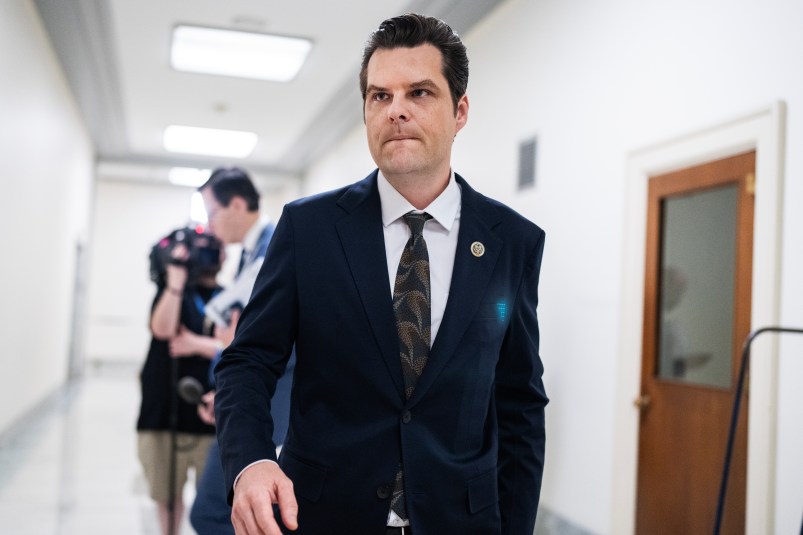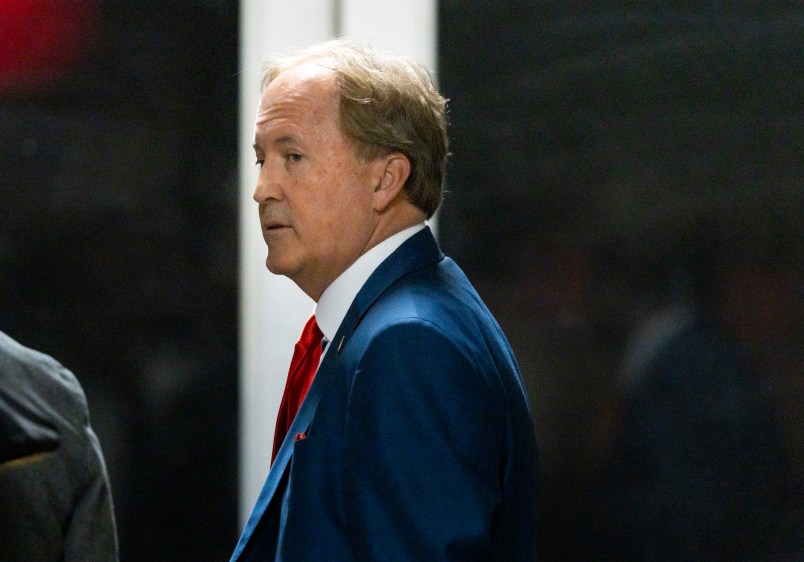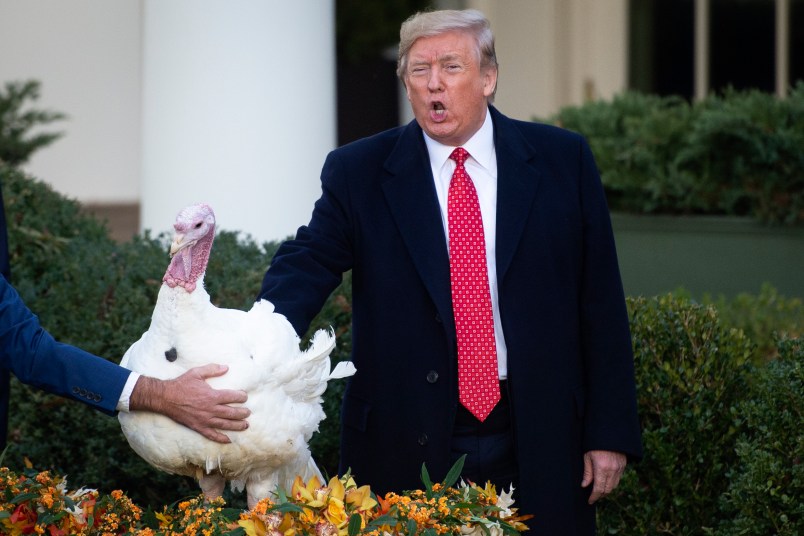Just a few weeks ago, it seemed that the energy around addressing the increasingly common practice of plaintiffs handpicking their judges had unexpectedly flared, and more expectedly died down.
In a shock to experts who have been harping on the issue to anyone who would listen for years, the Judicial Conference — the staid policy-making body for the federal courts — announced in March a new policy to randomize case assignments for certain kinds of lawsuits. This would stop right-wing litigants from judge-shopping their way into a single-judge division where they could ask for a national injunction — securing themselves a friendly judge who’d more likely than not block whatever Biden administration policy they didn’t like for the whole country.
But hope that this new policy would end the practice was short-lived. The chief judge for the Northern District of Texas, one of the most popular destinations for judge-shoppers thanks to Trump appointee and anti-abortion Judge Matthew Kacsmaryk, wrote in a letter to Senate Majority Leader Chuck Schumer (D-NY) that “the consensus was not to make any change to our case assignment process at this time.”
Many expected the typically non-reactive Judicial Conference, allergic to acknowledging the political dimension of the judicial system, to leave it at that.
“We cracked it!” joked Jennifer Ahearn, senior counsel for the Brennan Center’s Judiciary Program, pretending to imitate the Conference.
Ahearn and her colleagues sent a letter, worried the Conference would consider its job done.
“The recent policy does not obviate the need for an amendment to the Federal Rules; indeed, one of the districts that is a major source of concern regarding the proliferation of judge-shopping, the Northern District of Texas, has already declined to make any changes in response to the policy,” they wrote.
But there are at least some signs that the momentum hasn’t completely ebbed. The Civil Rules committee of the Conference said at its Tuesday meeting that it would keep researching and studying to see if an actual rule — versus its nonbinding policy — was necessary, with an eye on how districts implement the guidance.
Meanwhile, pressure on the Conference continues to build. Schumer introduced a bill to codify the policy. Senate Minority Leader Mitch McConnell (R-KY) — who advised judges to just ignore the new policy when it came out — introduced dueling legislation. A judge in the Northern District of Texas went on the record to tell the New York Times that the “consensus” his chief judge cited does not actually exist. This thing isn’t over yet.
Dueling Bills
That McConnell — who last month called the Conference policy an “unforced error” that does “Washington Democrats’ bidding” — felt compelled to put forth legislation reveals how much scrutiny the issue has attracted.
McConnell’s bill seeks to stop district courts from issuing national injunctions altogether, rather than targeting the single-judge districts like Schumer’s does.
“They know there’s not a good affirmative argument for judge-shopping, so instead, this is giving folks something they can point to when the issue comes up,” Ahearn said, calling McConnell’s bill a “distraction.”
McConnell’s bill, so far, hasn’t attracted much support. It had two cosponsors as of Wednesday, compared to the 39 who’d signed on to Schumer’s bill. Neither piece of legislation had lured senators from the other party.
“I don’t see any sort of groundswell of support among Republicans to do this, and why would they?” Ahearn added. “Why would they risk angering the people who are clearly co-partisans using this as a tactic?”
Schumer’s bill essentially codifies the Judicial Conference’s policy. But it’s notably light on details compared to some other legislation Democrats have proposed. Sen. Mazie Hirono’s (D-HI) version would give the D.C. district court jurisdiction over any suit seeking a national injunction against federal action. Other versions have proposed that panels of judges hear such lawsuits.
Ahearn called Schumer’s version a “consensus” bill, crafted more to showcase broad Democratic support than to get into the nitty gritty of how such a change would work (Hirono’s bill, introduced last year, has no cosponsors). A messaging placeholder, the legislation could be amended later, if Democrats won the House and had a path to making it law.
Conference Intrigue
At the Tuesday Judicial Conference Civil Rules committee meeting, chair U.S. District Judge Robin Rosenberg said that they’d wait and see how district courts are implementing the guidance before deciding whether a rule is necessary, per Bloomberg.
“The Judicial Conference policy is very helpful,” Brian Boynton, principal deputy assistant attorney general at the Justice Department’s Civil Division, said at the meeting, per Reuters. “It does appear that there is going to be some uncertainty about whether there is uniform uptake of the new policy.”
“Their investigating or researching different districts’ implementation of the new policy may itself put some pressure on the districts,” Amanda Shanor, assistant professor of legal studies and business ethics at the the Wharton School of the University of Pennsylvania, told TPM.
One notable absence from the meeting, according to Reuters, was Chief Judge David Godbey — the same judge who wrote to Schumer that his district had decided against implementing the new policy.
That assertion, according to another judge in his district, wasn’t true.
Judge Sam Lindsay told the New York Times that the issue had come up, briefly, at their late March meeting.
“I want to make one thing unequivocally clear,” he said. “There was no vote taken at the meeting. The only consensus we reached was to postpone discussion of the matter.”
“It’s pretty rare for a federal judge to go on the record with the New York Times, saying ‘please quote me on this discussion of our internal meeting,’” Ahearn said. “That’s fairly remarkable — and probably an indication that the issue is not settled within the Northern District of Texas at least.”











How long will the DoNothing GOP take to … do nothing?
At least through 2024.
Even with a system stacked in their favor in every way, it’s not enough. They want a dictator. It’s like there’s no appeasing authoritarians!
McTurtle will do everything in his power to maintain his long-term efforts to stack the courts.
IMHO He’s done as much, if not more, to harm this country as the Mayor of Mal-d-Lardo. He will do anything and everything to preserve his sinister legacy of evility.
Karma is sleeping on the job.